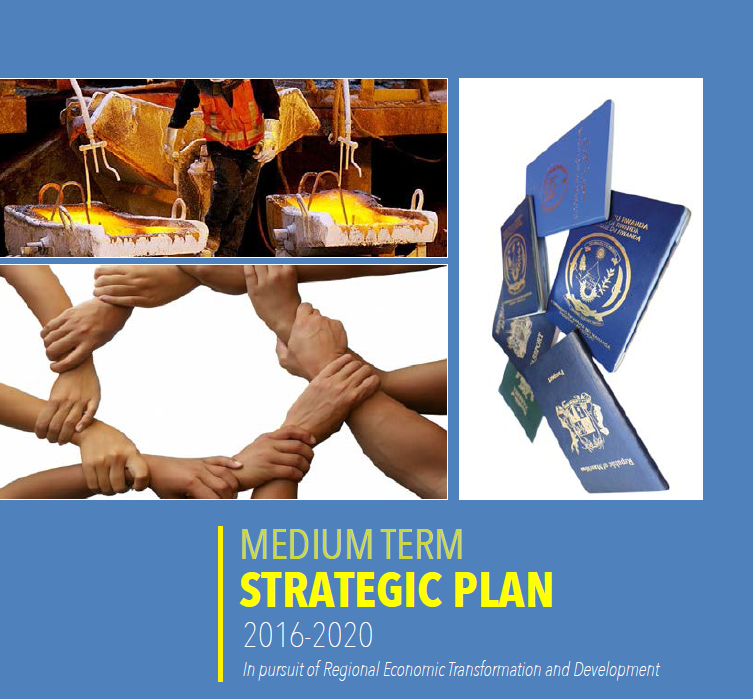
Lusaka, September 17, 2020: The COMESA Secretariat has developed a draft Medium-Term Strategic Plan (MTSP) covering 2021- 2025 which is geared to support structural transformation of the region and boost overall economic development through trade facilitation and investment promotion.
To formulate this new MTSP, the Secretariat used a wide consultative approach with key stakeholders both internally and externally. Consultations were undertaken at different levels including the African Union Commission under Agenda 2063, SDG Centre for the Sustainable Development Goals (SDGs) as well as with partner Regional Economic Communities (RECs) to gather information for the upcoming strategy. As a result, alignment has been established at the Global, Continental, Regional and subject specific levels.
As part of the strategy formulation process, the draft MTSP 2021 -2025 was today presented to the Member States for validation during a virtual meeting attended by 60 participants from the 21 Member States.
Addressing the delegates, COMESA Secretary General (SG) Chileshe Kapwepwe said the process to develop an inclusive and sustainable successor strategy has been a key priority for the Secretariat as the facilitating and coordinating office.
“It is important that we, as a Member State driven organization develop a strategic plan that will enable the region to build on its successes and override its challenges,” Ms Kapwepwe said.
She called upon Member States to domesticate the Strategic Plan once finalized, by aligning it with their National Development Plans (NDPs) and take on ownership of the implementation process. This is central towards attainment of the long-term goals of COMESA.
She also emphasized the need for a regional buy-in while acknowledging that the speed towards attaining the regional integration agenda will come about when Member States and non-state actors fulfill their roles and responsibilities.
The SG urged Member States to entrench ownership through funding of regional integration programmes. Currently, over 70% of the programmes are funded by cooperating partners.
“Sustainability of programmes under such funding arrangements is not easy to foresee. We need to think about reversing the reliance of external funding for regional integration programmes,” the SG said.
The plan is designed to create an enabling economic environment focusing on trade facilitation, market integration, infrastructure development, industrialization including small and medium enterprise development and regional industrial clusters, institutional and regulatory policies, capacity development as well as resource mobilization.
The Plan will be used as tool to engage COMESA’s strategic partners in the pursuit of regional integration to marshal both financial and non-financial resources and also provide a framework for developing the organization’s annual work programmes and budgets.
It will be presented to the COMESA Council of Ministers in November this year for approval and subsequent implementation from January 2021.




